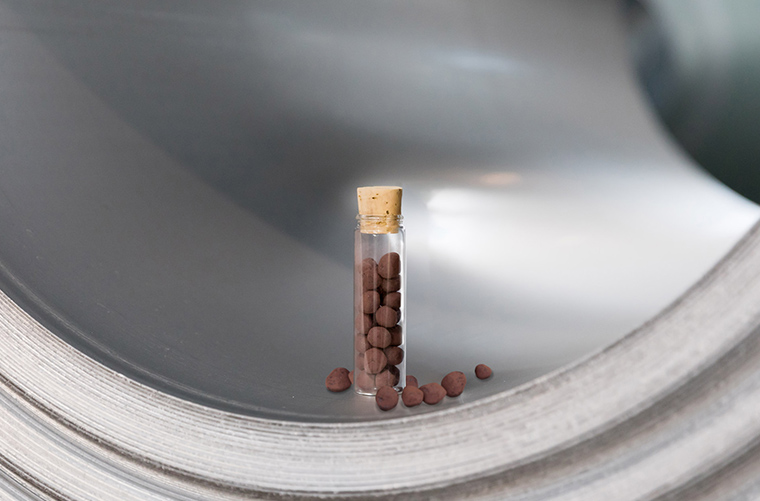Since bulk steel production was made possible by Henry Bessemer in 18551, it has become one of the world’s most important materials, used in everything from engineering and construction projects, to the cars we drive and many of the appliances in our homes.
With the important role steel plays in modern life and the need for it into the future there is a growing focus on how to source, produce, use and recycle it more responsibly – maximising the industry’s contribution to a more sustainable society, aligned with the growing demand for carbon-friendly steel products, tightening emissions’ regulations, and increasing investor and public interest in sustainability2.
In line with our business’ commitment to reducing our GHG emissions by 30% by 2030 (vs. 2016 baselines), we are exploring ways to collaborate with steelmakers globally and shape together innovative strategies to achieve this ambitious undertaking.
High-quality iron ore from our Minas Rio and Kumba mines in Brazil and South Africa is already making an important contribution to this goal. As well as its ability to reduce the carbon intensity of traditional blast furnace (BF) steelmaking, it is also a feedstock for direct reduction (DR) steelmaking – a segue to green steelmaking processes that use hydrogen, rather than fossil fuels, as a reductant.
Now, we have signed a memorandum of understanding (MOU) with European steelmaker, Salzgitter Flachstahl, to collaborate on the decarbonisation of the industry by exploring ways to further reduce the steelmaking sector’s carbon emissions.
This MOU frames our intentions to work together to conduct research into feed materials, including iron ore pellets and lump iron ores, suitable for use in direct reduction (DR) steelmaking based on natural gas and hydrogen, a significantly less carbon intensive production method than the conventionally used blast furnace (BF) integrated steelmaking process. The collaboration may also explore developing broader hydrogen technology where appropriate.
Peter Whitcutt, CEO of Anglo American’s Marketing business, said: “We have set ambitious targets to help address climate change by reducing our greenhouse gas emissions, such as achieving carbon neutrality across our operations by 2040.
“While steel is a critical building block of our modern lives, the industry is a significant producer of carbon dioxide globally. That’s why we are committed to collaborating with industry leading players like Salzgitter Flachstahl to develop strategies that capitalise on the properties of our products to help drive emissions reduction in our operations and across the entire sector.”
The MOU builds on the long-standing relationship between the two organisations and provides a platform from which to collaboratively explore opportunities for emissions abatement in the context of the sustainable energy transition.
It also reinforces Anglo American’s existing commitment to ensuring that, while the required technologies are developed to achieve lower carbon steel making, we provide high quality products that help drive efficiency and minimise the impact of current production processes.
The European steel industry has been developing new steelmaking technologies to reduce its carbon footprint, with Salzgitter working to produce steel as resource-efficiently as possible under its SALCOS® (Salzgitter Low CO2 Steelmaking) project. The project is targeting a switch from the use of BF based on coal to wholly DR steelmaking.
Ulrich Grethe, Chairman of the Management Board of Salzgitter Flachstahl GmbH and member of the Group Management Board of Salzgitter AG said: “With this project we continue to progress important milestones on the way to low CO2 steel production. In driving our SALCOS® technology concept forward, we aim to decarbonize steel production as efficiently and quickly as possible. We are delighted to be partnering with Anglo American, our long-standing major supplier of high-grade ores, for joint reflection and potential projects.”
DR steelmaking depends on high-quality iron ore feedstock, such as the materials produced by Anglo American’s South African and Brazilian mines, or further beneficiated feedstock from the same locations.
Through its platinum group metals market development activities, Anglo American has been an early promoter of the development of a hydrogen economy, recognising hydrogen’s potential to accelerate the decarbonisation of hard-to-abate sectors such as steelmaking, transportation and industrial processing.
1 Britannica - https://www.britannica.com/technology/steel/History
2 McKinsey & Company – ‘Decarbonization challenge for steel’, https://www.mckinsey.com/industries/metals-and-mining/our-insights/decarbonization-challenge-for-steel#


